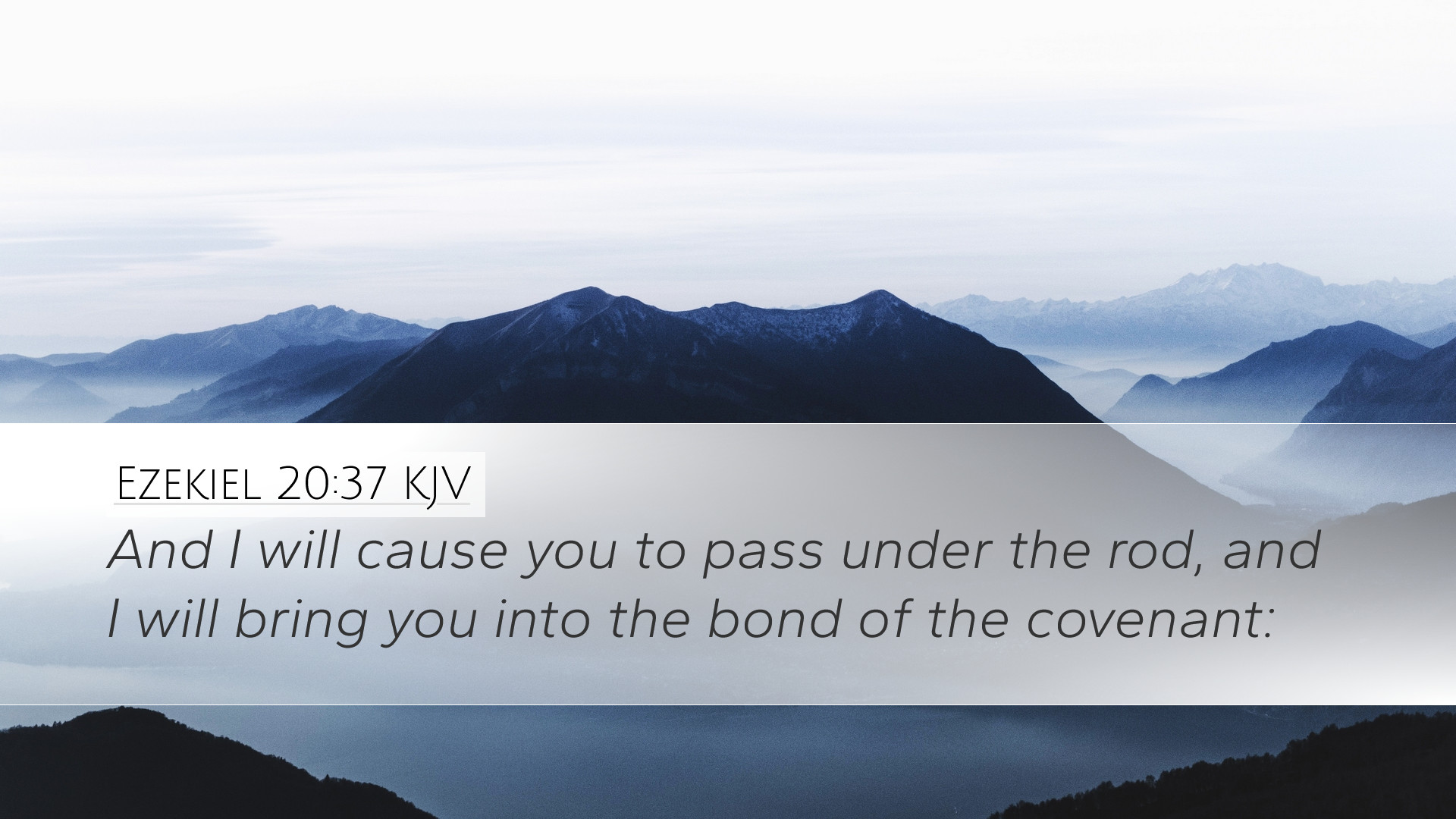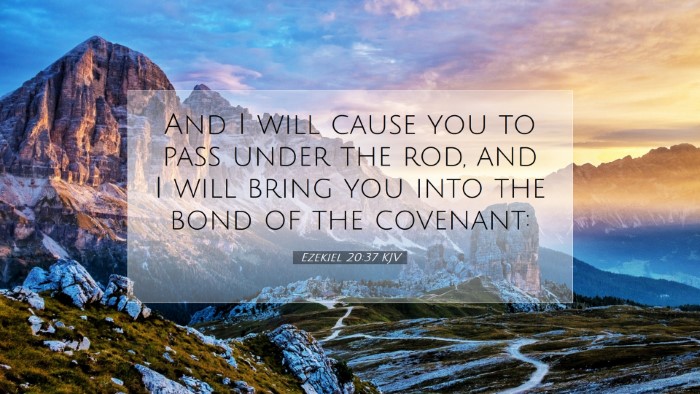Ezekiel 20:37 - A Commentary
This verse encapsulates the profound themes of divine judgment, restoration, and covenant renewal found within the prophetic literature of the Old Testament. In Ezekiel 20:37, God speaks through His prophet concerning the future dealings with His people, using imagery of a shepherd with his flock.
Text of Ezekiel 20:37
"And I will cause you to pass under the rod, and I will bring you into the bond of the covenant."
Exegesis and Insights
Contextual Background: This chapter is situated in a larger discourse where God addresses the exiled Israelites in Babylon, reminding them of their history, rebellion, and the call to repentance. The use of pastoral imagery establishes God's authority as both shepherd and judge.
Divine Authority and Judgment
Matthew Henry notes that the act of passing under the rod signifies a form of discipline and inspection. This metaphor illustrates the process by which God will assess His people, distinguishing the obedient from the disobedient. The rod is often a symbol of both authority and correction and serves as a reminder of God’s omnipotent governance over His flock.
Albert Barnes expounds on this metaphor further, revealing it as a reference to the traditional pastoral practices of counting sheep or examining them for defects. This practice signifies God's watchfulness over His people, demonstrating His desire to refine them.
Transition to Covenant Renewal
The latter part of the verse introduces the concept of entering into "the bond of the covenant." Here, Adam Clarke highlights that this renewal is not a simple return but a reaffirmation of the covenantal relationship that God intends to have with His people. It conveys the depth of commitment expected from both God and Israel in their relationship.
Theological Implications
This verse carries several vital theological implications:
- Call to Repentance: The process of passing under the rod serves as a precursor to a heartfelt call for repentance. The discipline outlined indicates that restoration follows acknowledgment of sin and a desire to return to God.
- Covenant Faithfulness: The emphasis on the bond of the covenant underscores the faithfulness of God to His promises despite Israel's unfaithfulness. This highlights the grace inherent in God's dealings with humanity.
- Hope for Restoration: For pastors and theologians, this verse presents a hopeful message that God desires reconciliation and not destruction. It depicts a God who is active in leading His people back to a faithful relationship with Him.
Practical Applications
Understanding the deep layers of meaning found in Ezekiel 20:37 allows for several practical applications today:
- Discipleship: As a shepherd, the role of church leaders includes guiding their congregation through necessary disciplines that foster growth and maturity.
- Community Accountability: Believers are called to support one another in their walk of faith, serving as instruments of God’s correction and encouragement within their communities.
- Embracing Grace: Recognizing God’s intention to restore rather than reject, churches can focus on grace-oriented ministries that work towards reconciliation and healing.
Conclusion
In summary, Ezekiel 20:37 presents a profound promise and challenge for the people of God. It emphasizes the necessity of divine judgment tempered by God's unwavering commitment to renew His covenant. This biblical passage invites reflection on God's nature as both shepherd and judge and calls for a deeper engagement in the journey of faith toward restoration. For pastors, students, and theologians, this verse serves as a reminder of the complex interplay between discipline and grace in the unfolding narrative of redemption.


